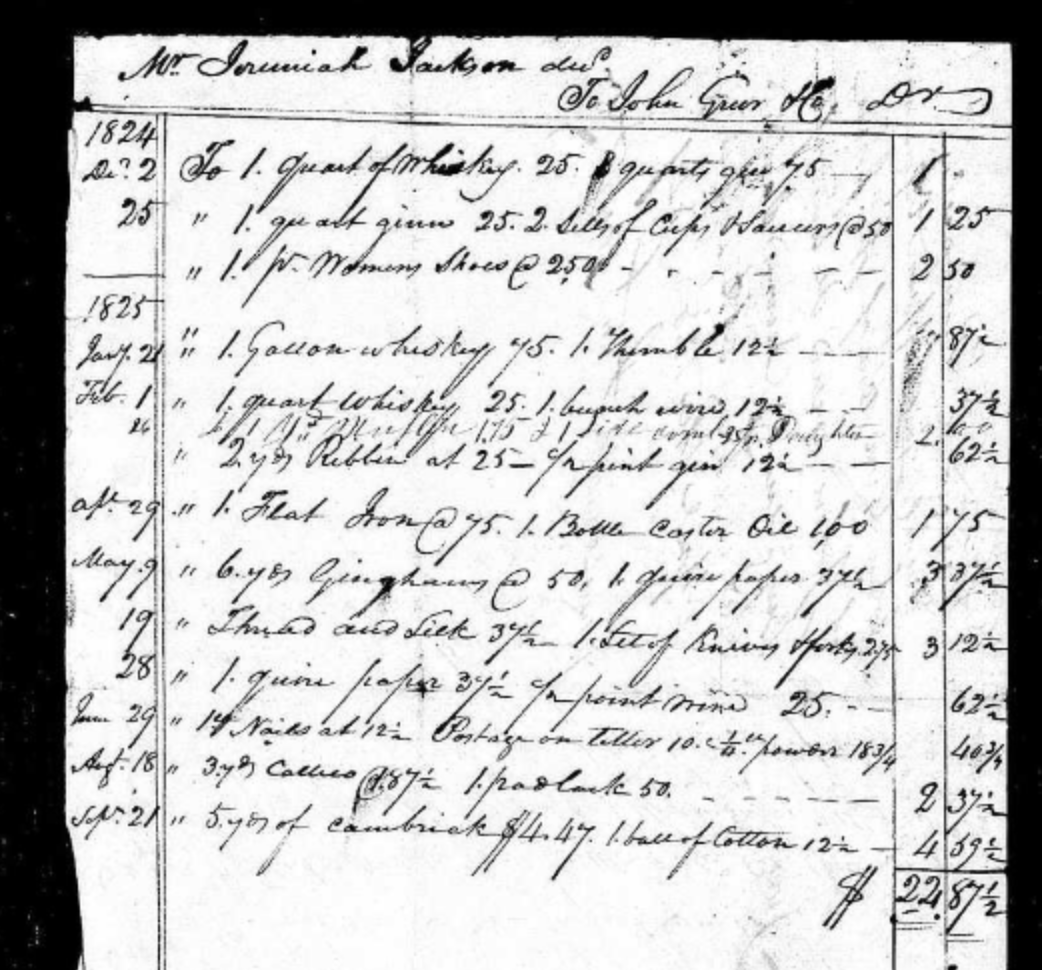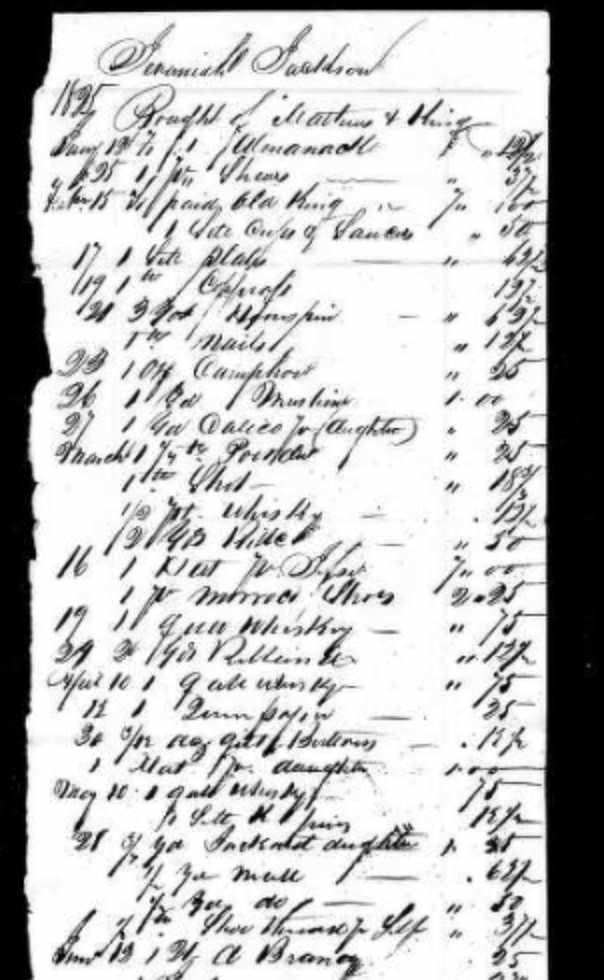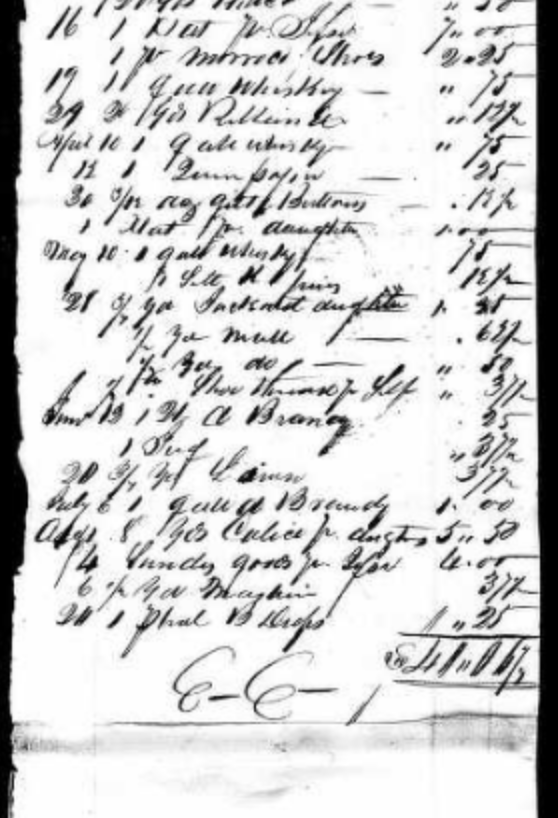View of Massanutten Ski Resort from the peak of Massanutten Mountain, Virginia, USA. Creative commons.
Regular readers know that I’ve been researching my family history off and on for a few years now. For me, one of the most interesting aspects of this research is reading people’s wills. I love discovering what people list as their most valuable possessions, and who they might leave those possessions to; it feels like a clear window into who they might have been. Recently, I’ve been focused on two specific wills: Martin Kauffman’s and Jeremiah Jackson’s.
Martin Kauffman, Jr.. was one of my fifth great-grandfathers on my father’s side. (His great granddaughter, Rebecca Roads, married my third great-grandfather, Isaiah Winegarner.) His grandfather was Michael Kauffman, born in Bern, Switzerland, in 1675. Michael came to the United States — likely a Mennonite fleeing religious persecution in Europe — and settled in Chester, Pennsylvania, on the banks of the Chester River. He married Anna Kniesley. They moved east to Landisville and had several children, including Martin in 1714.
The Kauffmans were one of a number of families to relocate from Mennonite settlements in Pennsylvania to the Shenandoah Valley in Virginia in the mid-1700s. At the age of 19, Martin Sr. married a local girl, 15-year-old Mary Lionberger. They and the rest of Rebecca Roads’ ancestors, including Joseph Rhodes and Mary Strickler, Abraham Brubaker and Barbara Miller, and Conrad Bieber and Maria Magdalena Kniesley (Anna Kniesley’s grand-niece), were among those who established a Mennonite stronghold in the valley next to Massanutten, a mountain named by the indigenous people of the area, most likely the Algonquins.
Menno Simons, whose teachings the Mennonites followed.
Martin and Mary had several children, including Martin Jr., Anna, Jacob, Magdalena (who married a Strickler), Nancy, David and Michael. Martin Sr. was a Mennonite minister for much of his life, including in Massanutten. When he died in 1749, his wife Mary administered his will, which had been written in German. It mentioned none of his children.
His effects were largely those of a holy man: five hymn books, three psalm books, 10 small books called “Golden Apples,” and many different books of sermons from men named Evan, Shay, Howard, Watt, Dodridge, Hickman, Blackwell and others. It also included a minister’s gown, 10 beehives, wigs, saddles and “much livestock.”
Less is known about the life of my fifth great-grandfather on my mom’s side, Jeremiah Jackson, who was born in 1760 in Bedford County, Virginia — about 150 miles south of Massanutten. (His descendant, Ona Jackson, was my great-grandmother). Eventually he headed south, settling in Greene County, Georgia, where he died in 1828. It’s unclear who he married; in his 1825 will, he only refers to her as “his wife” (he left her $5), but they had several children, including my fourth great-grandfather, Daniel E. Jackson.
His 1828 will, drafted the same year he died, lists a number of seemingly random items for sale, including a thimble, six yards of gingham and an amount of camphor. But what stood out to me were the vast quantities of whiskey and gin listed over the course of several months — pints or even gallons at a time. In 1828, a gallon of whiskey was valued at 45 to 75 cents. Same for a gallon of gin. A gallon of brandy was worth a dollar (which is akin to $20 today).
Some pages from his 1828 will:
Was he making his own spirits? Moonshine production didn’t really take off until after the South lost the Civil War, but that doesn’t mean he wasn’t doing it earlier.
I’m fascinated by how different Martin Kauffman’s and Jeremiah Jackson’s wills are. Sure, they both mention some regular household items. But the bulk of their worldly belongings lean in vastly different directions. Minister’s gowns and semon books. Gallons of whiskey and gin. I wonder what would have happened if they’d met. What would they talk about? Would they get along? Although their DNA mingles in me, I can’t begin to guess.




